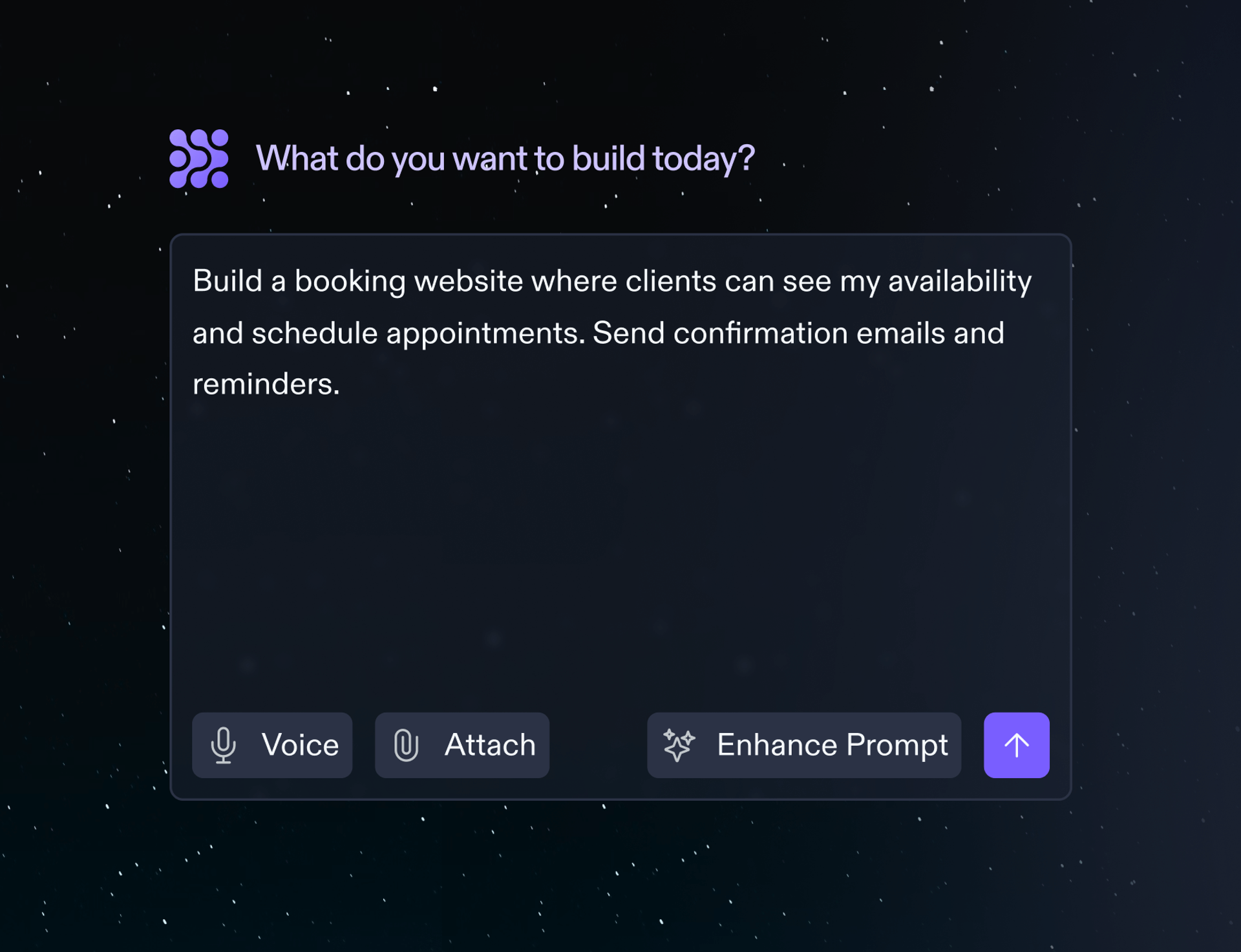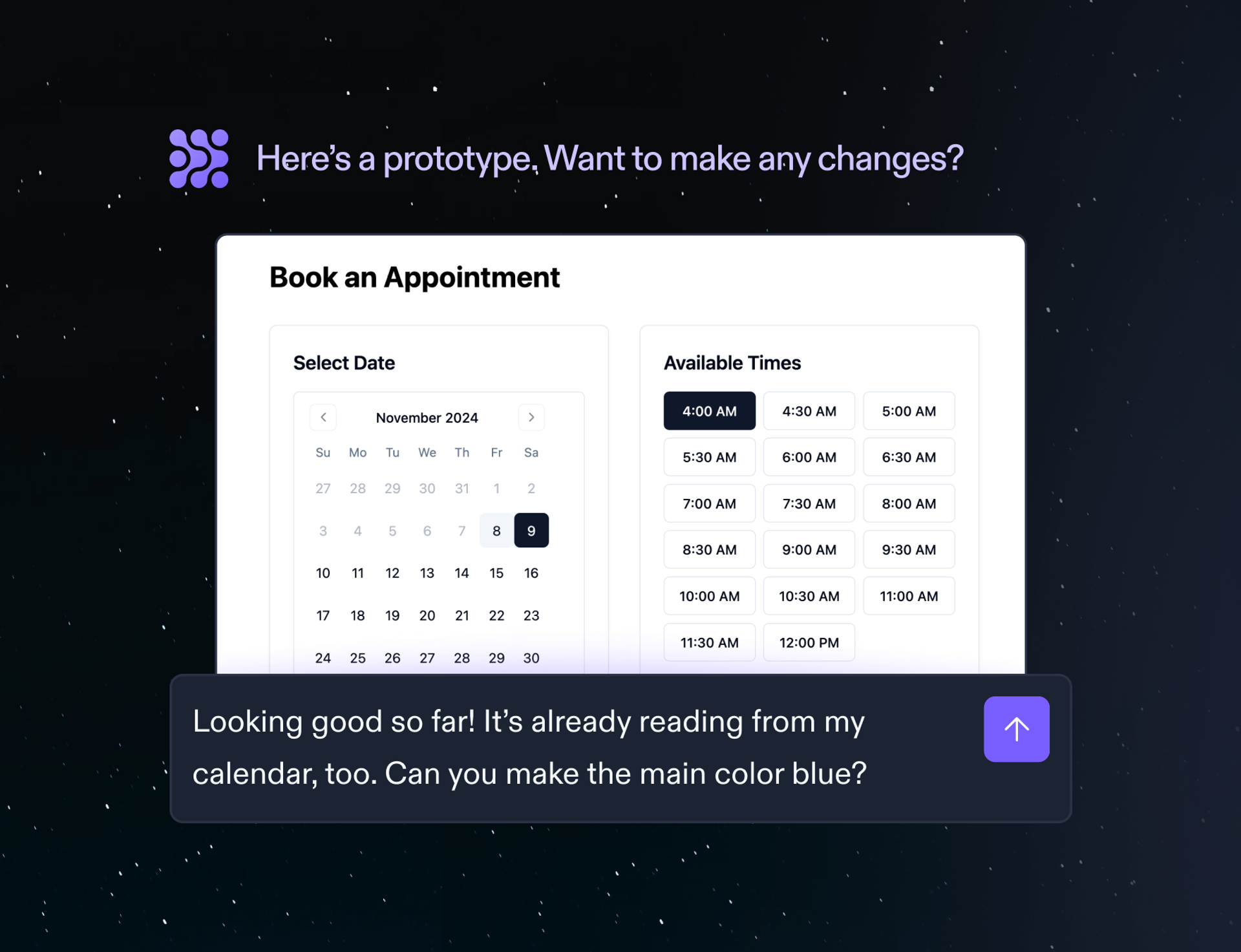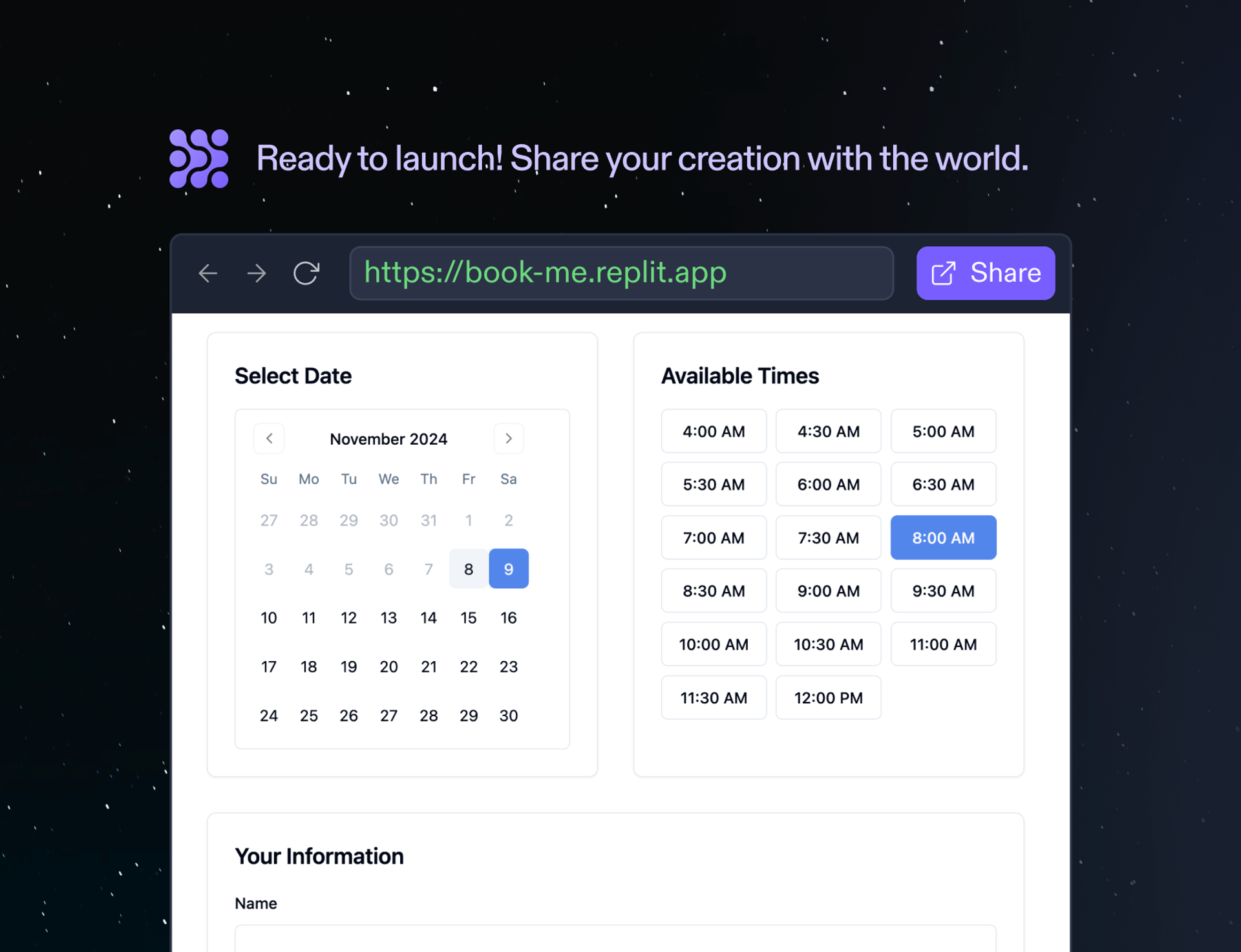Turn your ideas into apps
What will you create? The possibilities are endless.
Make me
for
that helps
Replit Agent: The best AI for apps and websites
Your own automated app developer
Meet Replit Agent, an advanced AI making programming accessible to everyone. Build at the speed of thought and launch in minutes.




Click each step to see how it works:
Prompt Replit Agent by describing the app or site you want to create. Replit AI can even help you enhance your prompt for the best results.
Prompt Replit Agent by describing the app or site you want to create. Replit AI can even help you enhance your prompt for the best results.
Get started for free
Create & deploy websites, automations, internal tools, data pipelines and more in any programming language without setup, downloads or extra tools. All in a single cloud workspace with AI built in.